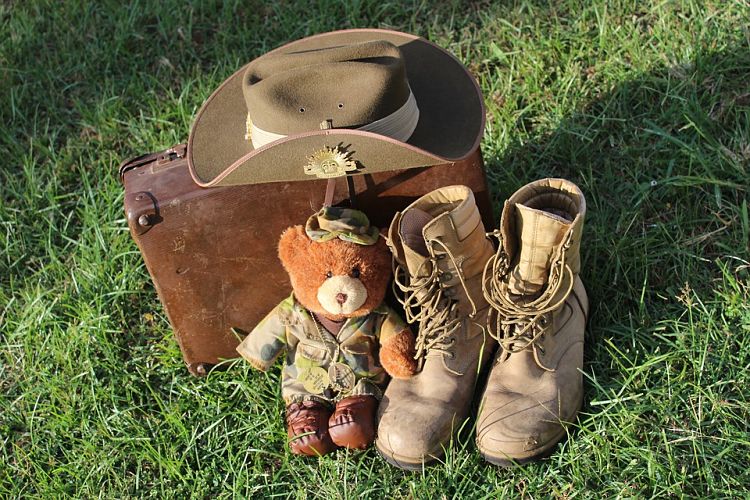
Who knows better than military personnel what it’s like to move? While most of us can take our belongings with us when we go, that is not always an option for soldiers being deployed overseas or assigned elsewhere on a short-term basis. On top of frequent moves, military personnel often head out to new assignments on short notice.
This doesn’t mean you have to get rid of your possessions or even leave them in the ‘safe’ keeping of someone you know. Many storage facility operators are aware of the needs and circumstances of their military customers and will gladly work with you.
Tips for Storing Your Possessions
Search online, and ask around. Find out what others are saying about the facility you’re considering. How do they treat their customers? Don’t just choose a storage facility based on price. If a business gets so-so reviews, its discounted price may not be worth it.
Look for military discounts. Most storage facilities offer discounts to members of the military. Also, consider more than just price in your decision.
Month-to-month Rent. You could simply require self-storage for a few months so that you can settle into your new house. Or perhaps you don’t know exactly how long you’ll be stationed abroad, especially if your deployment is prolonged. Finding a self-storage facility that offers flexible or month-to-month leasing is crucial for this reason. In this way, you only have to pay for your storage unit’s rental for the time that you actually use it and avoid being tied to a lengthy agreement.
Secured Facility. You want your goods to be secure while they’re being stored, so check out the security precautions a self-storage facility provides to safeguard clients and their priceless possessions.
Label your boxes. Color code your boxes with yard sale dots. For example, if you mark your kitchen boxes blue, you can keep them organized when it comes time to retrieve them from storage. If you’ll be taking them with you, labeling your boxes will make the unpacking process far easier at your destination.
Firearms. You must prepare in advance if you intend to store your firearm. Not all storage companies permit the storage of weapons. Additionally, you’ll need to keep your ammunition somewhere else. Always inquire whether firearms are on the list of restricted objects while looking for storage choices. It’s a good idea to inquire about storage possibilities on base if you are having trouble locating firearm storage.
Store your gear efficiently. Put heavier items to the bottom of the stack. Got a box of books? Don’t stack it on top of your kitchen glassware. To save space, some furniture can be stored on its side. Got a prized collection of vinyl records? Store them upright to prevent warping. Packing away any liquids like shampoo or detergents? A few seconds spent tightening the top can save you a box of possessions later on. Also, make sure you store liquids upright.
Protect your electronics. If at all possible, box your computers, big-screen TVs and the like. Be sure to fill the voids with packing peanuts or foam. If that isn’t possible, wrap them securely in blankets or towels and pad them with cushions or pillows.
Store your vehicle. Do you really want to leave your vehicle with that uncle you barely know? It will be kept safer in storage, and the mileage won’t mysteriously increase. Other things to consider when storing your vehicle:
- Change the fluids
- Clean the inside and outside the car, and put on an exterior protective finish
- Take all your possessions out
- Invest in a cover if it’s exposed to the elements
- Protect the tires by putting them up on jack stands or blocks
- Drain out most of the fuel and add a stabilizer. This will protect your fuel system and prevent rust
- Place an open box of baking soda on the floorboard to absorb odor and moisture
- Look into cheaper insurance options on your vehicle while it’s in storage
Give someone else access to your storage unit. Make sure the facility manager is aware of this person. It’s a good idea to leave their name and number with the manager in case something happens and you cannot be contacted.
Things you cannot store. As with everything, there are some things that you cannot, or shouldn’t store. Make sure you don’t pack any food in your haste to box things up. That unopened bag of chips won’t be much of a treat by the time you get back. Also, don’t put anything flammable or explosive in storage.
Business Storage
While self-storage is generally linked with personal goods, it can also be a beneficial resource for military personnel who need to store business-related items while moving.
One useful piece of advice is to look for self-storage facilities that offer business storage near your new duty station. These specialist storage containers are intended to house not just personal things but also crucial company or entrepreneurial paperwork, inventory, equipment, and supplies. You can ensure that your work-related items are safe, organized, and easily accessible during the relocating process by using corporate storage. Inquire about climate-controlled containers, security features, and any other services that may be advantageous for your specific company storage requirements.
Your Rights
The military lifestyle is erratic. Whether you are a reservist or a full-time military member, you are aware that you may be called to active duty or sent on deployment at any time. Your storage facility can encounter difficulties as a result of these abrupt adjustments. However, you shouldn’t be punished due to uncontrollable situations. Because of this, there is a statute in place to safeguard the possessions of military personnel who are stationed abroad. Regulations under the Service Members Civil Relief Act prohibit storage facilities from selling your possessions at auction because you missed a payment or had to use long-term storage unexpectedly.
Anticipating your deployment or reassignment merits its own stress, without the added burden of wondering what to do with those things you have to leave in storage. Hopefully, using the tips above will alleviate some of that stress.





Thanks on your marvelous posting! I really enjoyed reading it, you’re a great author.I will always bookmark your blog and definitely will come back later in life. I want to encourage you to continue your great writing, have a nice weekend!
Hi Jenn, your article is really great! You have given precise details. Some blogs from other companies like NeedSpacePMS.com also provides interesting articles like this. Because of your hard work and perseverance, individuals like me can find the perfect facility for my items. Thanks a lot.
Neat short article! I will actually book mark it for future reference.
Many thanks!
I really need to reveal to you which I am new to online blogging and really loved your website. Probably I am most likely to remember your blog post . You seriously have lovely article subject. Acknowledge it for swapping with us your internet site webpage.